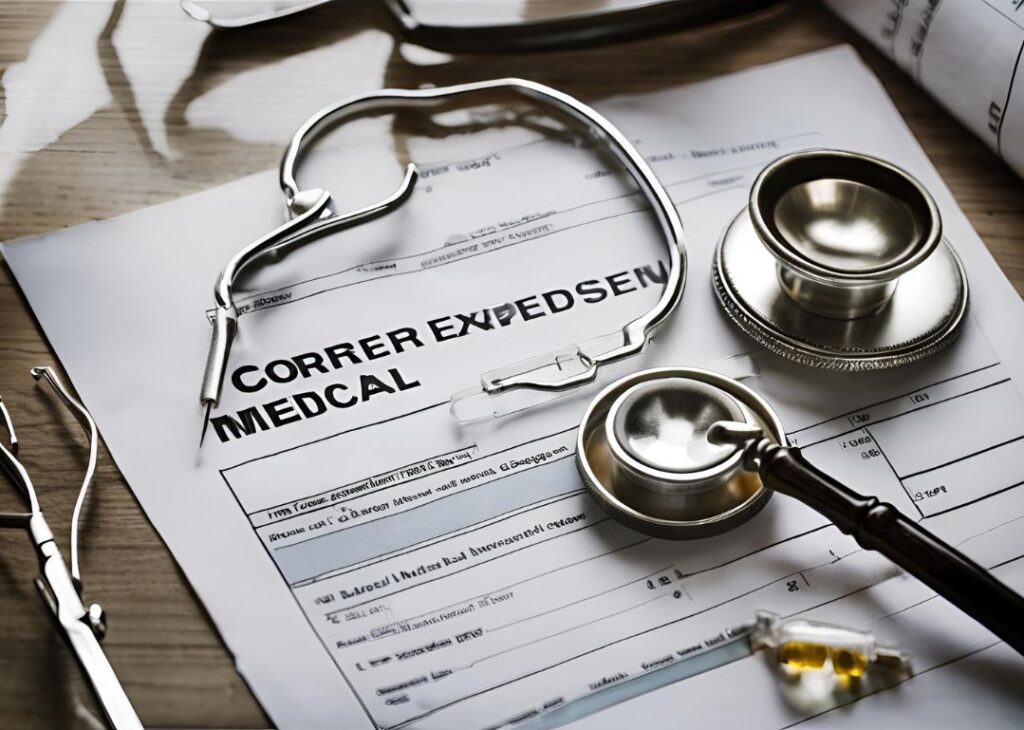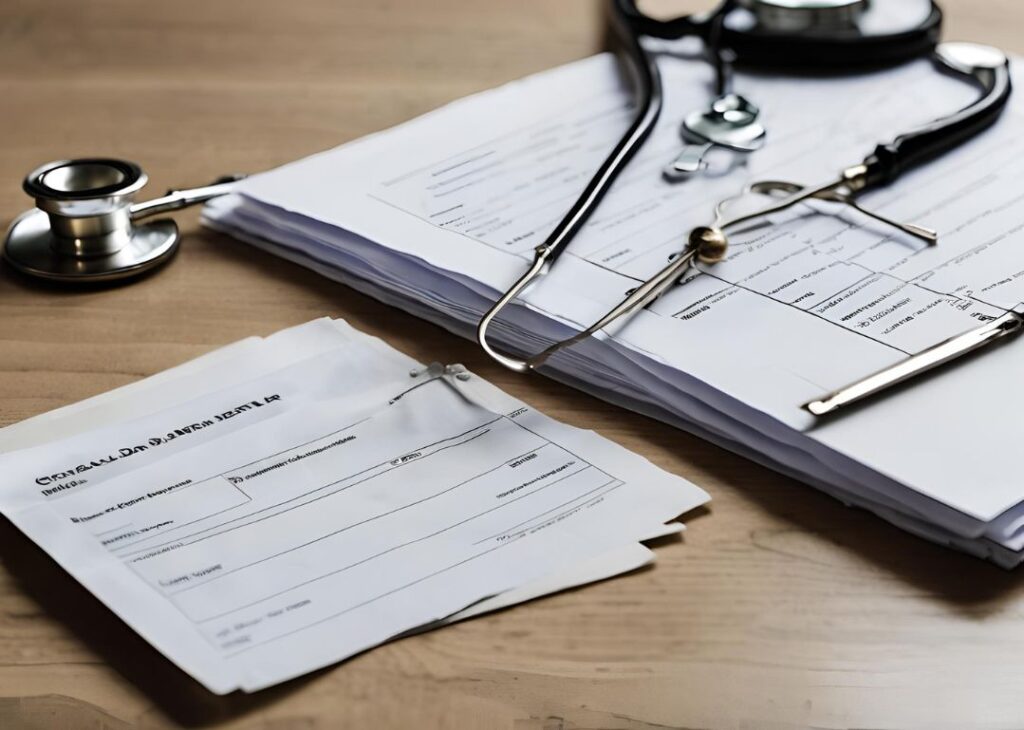TL;DR
Recovering medical expenses in a Georgia wrongful death lawsuit involves identifying eligible costs, establishing the defendant’s liability, accurately calculating the expenses, and navigating the legal process with proper documentation. It’s essential to consult with an experienced attorney to ensure all medical costs are accounted for and properly claimed.
Key Highlights
- Identify Eligible Medical Expenses: Determine which medical costs related to the deceased’s care are recoverable.
- Establish Liability: Prove that another party’s negligence or wrongful actions caused the death.
- Calculate Total Expenses: Accurately sum all medical bills, treatments, and related costs incurred.
- Gather Evidence: Collect medical records, bills, and expert testimonies to support your claim.
- File a Lawsuit Promptly: Adhere to Georgia’s statute of limitations by filing within the required timeframe.
- Consult a Legal Expert: Work with a wrongful death attorney to navigate legal complexities and maximize your recovery.

Medical expenses incurred before a wrongful death can quickly accumulate, placing a significant financial strain on grieving families. In Georgia, these costs are recoverable as part of a wrongful death lawsuit, allowing survivors to seek reimbursement for necessary medical treatment related to the injury or illness that caused the death. According to Georgia’s wrongful death statute (O.C.G.A. § 51-4-2), families have the right to pursue compensation for reasonable and documented medical expenses as part of their claim.
Successfully recovering these expenses requires more than just submitting bills , it involves a detailed process of proving the costs were directly linked to the injury, were reasonable, and properly documented. Navigating this process involves understanding Georgia’s legal standards, timely filing claims, and gathering thorough medical and financial evidence. This piece provides a step-by-step guide to help families recover medical expenses in wrongful death cases under Georgia law.
Step 1: Confirm the Wrongful Death Claim Eligibility
Before pursuing medical expense recovery, it’s essential to establish that the death qualifies as a wrongful death under Georgia law. Per O.C.G.A. § 51-4-2, a wrongful death claim arises when a death is caused by the negligence, recklessness, or unlawful act of another party. Confirm that your case meets these criteria with the help of an experienced attorney.
- Verify the cause of death relates to someone else’s negligence or wrongful act
- Understand the legal definition of wrongful death in Georgia
- Consult an georgia wrongful death lawyer to assess claim eligibility
Step 2: Gather Detailed Medical Records and Bills
Collect all medical documentation related to the deceased’s final injury or illness, including hospital records, doctor’s bills, prescriptions, ambulance receipts, and rehabilitation costs. Accurate, itemized records are crucial for proving the exact medical expenses incurred before death.
- Request comprehensive hospital and treatment records
- Obtain all invoices and bills from medical providers
- Ensure the documents are organized and complete
Step 3: Identify and Document All Related Medical Expenses
Medical expenses in wrongful death cases cover all reasonable costs incurred from the injury or condition that caused the death. This includes emergency treatment, surgery, hospital stays, medication, physical therapy, and medical devices. Organize these expenses chronologically and maintain original receipts or official statements from providers.
- List all medical costs related to the injury or illness
- Include emergency care, surgery, medications, therapy, and equipment
- Keep original receipts and formal statements for proof
Step 4: Obtain Expert Medical Testimony
In complex cases, expert testimony can help clarify which medical treatments were necessary and directly related to the injury or negligence causing the death. Medical experts can also help establish the reasonableness and necessity of the expenses claimed.
- Engage medical experts familiar with the injury type
- Use expert reports to support the necessity of treatments
- Expert testimony can strengthen the credibility of your claims
Step 5: Calculate Total Medical Expenses Accurately
Add up all verified medical costs from the time of injury until the deceased’s passing. This total forms a key part of your economic damages claim in the wrongful death lawsuit.
- Sum all documented medical expenses carefully
- Double-check for any missing or overlooked costs
- Prepare a clear summary to present in the case
Step 6: Include Medical Expenses in Your Wrongful Death Complaint
When filing your wrongful death lawsuit, specifically list and document medical expenses as part of your claim for economic damages. This formal inclusion is critical to ensure these costs are recoverable.
- Clearly itemize medical expenses in the legal complaint
- Attach supporting documents to substantiate claims
- Work with your attorney to properly frame the damages
Step 7: Negotiate with Insurance Companies
Insurance providers often attempt to minimize payout amounts. Use the thorough documentation and expert support to negotiate effectively for full compensation covering all medical expenses. An attorney can handle these negotiations to protect your interests.
- Present detailed medical expense documentation during negotiations
- Challenge low settlement offers with evidence and expert opinions
- Allow your attorney to negotiate on your behalf for better results
Step 8: Prepare for Trial if Necessary
If negotiations fail, medical expense claims must be proven in court. Present all evidence and expert testimony clearly to demonstrate the full extent of medical costs related to the wrongful death.
- Organize medical records and expert reports for court presentation
- Prepare witnesses and experts for testimony
- Build a compelling case to demonstrate economic damages
Step 9: Understand Statute of Limitations
In Georgia, wrongful death claims must be filed within two years of the victim’s death under O.C.G.A. § 9-3-33. Filing timely is critical to preserving your right to recover medical expenses and other damages.
- Note the two-year deadline for filing wrongful death suits
- File your claim promptly to avoid dismissal
- Consult a lawyer immediately to ensure deadlines are met
Understanding Wrongful Death in Georgia
What is Legal Framework?
In Georgia, a wrongful death claim arises when an individual dies due to the negligence or intentional actions of another party. The state’s Wrongful Death Act allows eligible family members to seek compensation for their loss. Understanding the specific legal definitions and frameworks is crucial for building a strong case.
Eligible Parties
Eligible parties typically include the deceased’s spouse, children, and in some cases, parents or siblings. These individuals can file a suit to cover various damages, including medical expenses, lost wages, and emotional suffering.
Types of Wrongful Death Cases
Common wrongful death cases in Georgia involve medical malpractice, workplace accidents, automobile collisions, and criminal acts. Each category has its unique set of legal considerations and evidence requirements.
Identifying Recoverable Medical Expenses
Types of Medical Costs Covered
In a wrongful death lawsuit, recoverable medical expenses can include hospital bills, surgical procedures, medications, rehabilitation costs, and any other medical treatments the deceased underwent before passing away. It’s essential to document all related expenses comprehensively.
Tangible vs. Intangible Expenses
While medical expenses are tangible costs directly related to the deceased’s healthcare, some cases might also consider intangible expenses like the cost of caregiving or other support services that were necessary due to the individual’s condition.
Documentation Requirements
Accurate and thorough documentation of all medical expenses is vital. This includes bills, receipts, insurance statements, and records of medical treatments. Proper documentation serves as evidence to support the claim for compensation.
Establishing Liability in a Wrongful Death Case
Proving Negligence or Intent
To succeed in a wrongful death lawsuit, it’s necessary to demonstrate that the defendant’s actions were negligent or intentional and directly caused the death. This requires establishing a clear link between the defendant’s behavior and the fatal outcome.
Gathering Evidence
Evidence collection involves obtaining medical records, accident reports, witness testimonies, and expert opinions. This evidence helps build a compelling case that supports the claim of liability.
Legal Standards and Burden of Proof
Georgia law sets specific standards for proving wrongful death, typically requiring that the plaintiff provide clear and convincing evidence of the defendant’s fault. Understanding these legal standards is essential for effectively presenting the case.
Calculating Medical Expenses
Direct vs. Indirect Costs
Direct medical costs include all bills related to the deceased’s medical treatment, while indirect costs might cover related expenses such as transportation to medical facilities or modifications made to a home to accommodate medical needs.
Future Medical Expenses
In some cases, future medical expenses may also be claimed, especially if the deceased had ongoing medical needs leading up to their death. Estimating these future costs requires careful analysis and expert consultation.
Working with Financial Experts
Collaborating with financial experts or accountants can help accurately calculate the total medical expenses. Their expertise ensures that all relevant costs are included, maximizing the potential recovery.
Gathering Evidence and Documentation
Medical Records and Bills
Collecting comprehensive medical records and bills is fundamental to substantiating the claim for medical expenses. These documents provide a detailed account of the treatments and costs incurred.
Witness Statements and Expert Testimonies
Witnesses who observed the incident leading to the wrongful death or experts who can attest to the medical aspects of the case play a critical role in strengthening the lawsuit.
Organizing and Presenting Evidence
Properly organizing evidence in a clear and coherent manner makes it easier for the court to understand and assess the validity of the claims. This involves categorizing documents, preparing summaries, and ensuring all information is readily accessible.
Navigating the Legal Process
Filing the Lawsuit
Initiating a wrongful death lawsuit involves filing the necessary legal documents within Georgia’s statute of limitations, which typically is two years from the date of death. Prompt action is essential to preserve the right to seek compensation.
Pre-Trial Procedures
The pre-trial phase includes discovery, where both parties exchange relevant information, and possibly mediation or settlement discussions. Navigating this phase requires strategic legal planning to build a strong case.
Trial and Settlement
If a settlement isn’t reached during pre-trial negotiations, the case may proceed to trial. During the trial, both sides present their evidence, and a judge or jury determines the outcome. Settlements can occur at any stage, offering a resolution without the need for a full trial.
Conclusion
Recovering medical expenses in a Georgia wrongful death lawsuit is a multifaceted process that demands a thorough understanding of legal principles and meticulous documentation. Families grappling with the loss of a loved one face not only emotional challenges but also significant financial burdens. By identifying eligible medical costs, establishing liability, accurately calculating expenses, and effectively navigating the legal landscape, they can seek the compensation necessary to alleviate some of these pressures.
Engaging with a knowledgeable wrongful death attorney can make a substantial difference in the outcome of the case. These legal professionals provide the expertise needed to compile strong evidence, adhere to procedural requirements, and advocate effectively on behalf of the bereaved family. Taking timely action is crucial, as Georgia’s statute of limitations imposes strict deadlines for filing claims.
If you are facing the complexities of a wrongful death situation, Contact us today for a free case evaluation. Acting now can help ensure that your rights are protected and that you receive the support and compensation you deserve during this difficult time.
